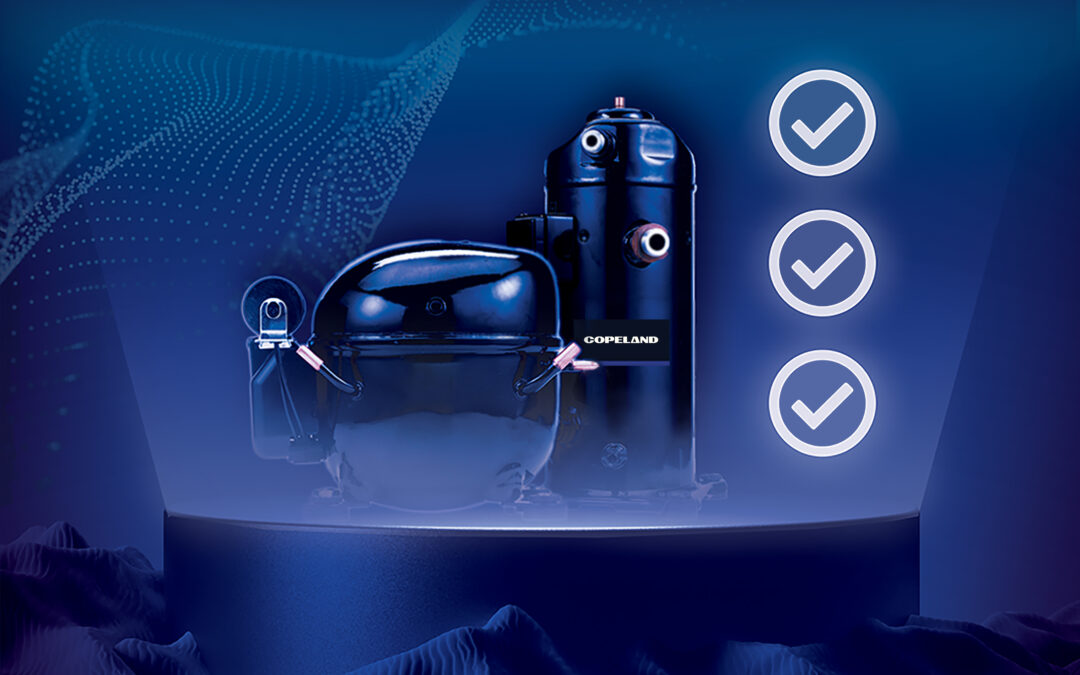*On June 1, 2023 Emerson’s Climate Technologies business became a new standalone company – Copeland. Though our name has changed, we are building on more than a century of HVACR innovation and industry leadership, and Copeland continues to offer the same products, industry stewardship, and learning opportunities you’ve grown to trust. Information found on this webpage posted before June 1, 2023 may contain our old name or branding, but you can be at ease knowing it was created with the knowledge and expertise of Copeland.
Symptoms of a foodborne illness outbreak
For companies involved in food handling, the potential symptoms of a food poisoning outbreak include: local or national recalls; fines; legal action; potential financial losses; and tarnished brand reputations.
With this in mind, compliance with new regulations and laws regarding food safety and the use of facility-wide environmental monitoring are your best protections against these symptoms.

A serious problem
Food poisoning is a major cause of death in the U.S. According to the Centers for Disease Control and Prevention (CDC), foodborne illnesses affect 48 million Americans annually, resulting in 128,000 hospitalizations and 3,000 deaths. And in an age of 24/7 news coverage, any food poisoning outbreak can put a company under a harsh public relations spotlight. In 2015, at least 64 people contracted salmonella from tomatoes at a Mexican quick-serve restaurant. It resulted in two class action lawsuits and eroded consumer trust. A top-selling ice cream brand recalled all of its products in 2017 when 10 reported cases of listeria resulted in three deaths. In late 2018, all of the romaine lettuce in the U.S. was pulled from stores for a month while the CDC searched for the source of its e-coli contamination. The fact is, health officials, the CDC and the U.S. Food and Drug Administration (FDA) will work to track down the source of virtually all food poisoning outbreaks all the way down the supply chain and cold chain.
The risk comes from not seeing the problems
All too often, the processors found at fault had no idea they were putting consumers at risk. Like all processors, they have to balance the cost and burden of ensuring food safety while still maintaining a profitable business. But many have little way of knowing — or the data to warn them — that they were not maintaining safe handling procedures nor providing a safe environment for food safety.
FSMA: addressing the problem
With the signing of the FDA’s Food Safety Modernization Act (FSMA) in 2011, a series of regulations set out seven steps to prevent food poisoning outbreaks through prevention programs and environmental monitoring. The FSMA reflected the need for a modern, global food safety system, “a system in which industry is systematically, every day, putting in place the measures that we know are effective in preventing contamination” (Michael R. Taylor, FDA deputy commissioner for foods and veterinary medicine, 2015).
Regulations like the FSMA are often regarded as an expensive burden. But when you realize that food poisoning outbreaks cost the food processing industry $75 billion per year, investing in preventing problems rather than paying for the consequences makes FSMA compliance an economic imperative.
That’s why Emerson has been tirelessly working to help ensure our Lumity™ and Cooper-Atkins™ products and solutions are in compliance with FSMA mandates, and providing environmental monitoring systems and end-to-end data services that help control and manage food safety anywhere in the cold chain.
How does the FSMA affect you?
New laws were passed in 2016 to bolster the 2011 FSMA for both large and small FDA-registered companies. To comply, companies must:
-
- Establish and maintain food safety systems, including having a Hazard Analysis Risk-Based Preventive Controls (HARPC)plan
- Maintain risk-based supply chain programs for raw materials and ingredients
- Provide current Good Manufacturing Practices (cGMP)training to employees
- Verify the controls are effective through environmental monitoring, testing, corrective actions and documenting outcomes
At Emerson, we have the expertise, products and systems to help you implement fully compliant HARPC systems and controls, as well as consult on your cGMP education and training programs. Emerson’s Lumity and Cooper-Atkins businesses specializes in advanced environmental monitoring systems.
The importance of environmental monitoring
There are many areas along the processing chain where food may be compromised. Storing, receiving and holding food-related items at a temperature that prohibits bacterial growth are required parts of your company’s HARPC plan, making integrated, wireless environmental monitoring systems a must-have.
Processing facilities that invest in integrated, wireless temperature monitoring systems benefit in numerous ways:
-
- Eliminating manual labor
- Streamlining the collection of environmental data
- Creating custom reporting
- Complying with new FSMA laws and FDA rulings
As a leading manufacturer of wireless monitoring solutions, Emerson offers a range of environmental monitoring systems through our Lumity and Cooper-Atkins businesses. TempTrak Enterprise® is a facility-wide solution that can monitor an unlimited number of points in unlimited locations — all from one software platform. NotifEye® kits are affordable, streamlined and self-installed systems for more localized operations. Both are exception-based systems: they only send out alerts when preset limits are exceeded, saving time and labor while protecting your inventory and, more importantly, brand integrity.
An investment in protection
When you look at the human cost of food poisoning outbreaks, as well as the millions of dollars in recall costs and destroyed reputations, FSMA compliance and facility-wide environmental monitoring and data systems become a highly cost-effective investment. With compliance and a data trail, you can not only prevent foodborne outbreaks, but also verify compliance and protect your brand.

Electrical component considerations for A2L system safety
Electrical component considerations for A2L system safety As a new refrigerant category in the...

A2L refrigerant regulation updates: what you need to know today
Preparing for the approval and safe use of A2Ls in commercial refrigeration applications The move...

Address Efficiency Mandates with Compression Technologies
Strategies for complying with DOE and ENERGY STAR® in self-contained and remote condensing units...
